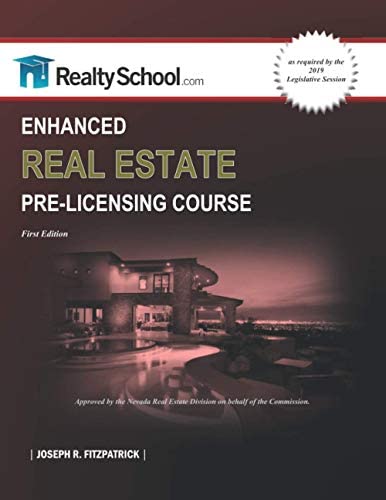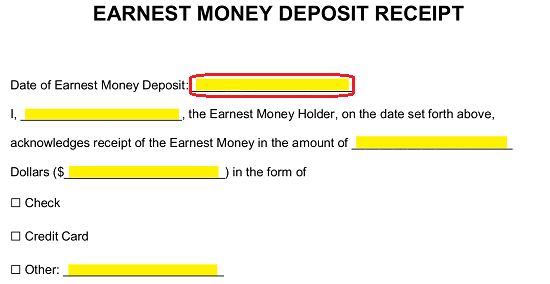
If you have ever wondered how you can make money from property, you are not alone. There are many ways that property can bring you cash, including buying raw land, a second home, and investing in a foreclosed house. Here are some tips and strategies to help you get started. No matter how good your plan is, you should allow yourself some flexibility for unexpected setbacks and costs. Below are some of our most-recommended methods.
The possibility of renting out rooms in your own house
A great way to make extra money is to rent out rooms in your house if the property is already owned. While you may not need to rent the rooms out, this can still be a great way of making extra money. Here are some ideas to help you get going. Prepare the space for renting. Verify that the heating and electricity are working properly. Indicate which bathroom belongs to the tenant if there is one. Know how to market the room.

Investing to buy a second house
A second home is a great investment. You can live in the comforts and convenience of your second house while still earning money. You can save some money to buy a second house and then invest the rest in an investment property. You can also rent out the second home for profit, even if you don't use it. Investing in a second house can help you build your real estate portfolio and give you the financial security you desire.
Buy a Foreclosure
Here are some important things to remember when investing in foreclosures. Before you buy, you need to have a plan. There are two common strategies for buying foreclosures: flipping or holding the home for the long term. Both methods can earn you good profits, so you should determine which one works best for you and your finances. Read the tips below to make sure you're getting the most value for your money.
Investing In Raw Land
Investing in raw land has many benefits for real estate investors. Raw land can be transformed into different types of entities. This is in contrast to commercial and residential property which are subject to fierce competition and buyers who outbid each other. There are many ways to make a profit from your investments, whether it's a single unit, multiple units or a complex. You'll also be able to enjoy lucrative long-term returns because raw land can appreciate over time.

Investing in multifamily housing
You can increase your net wealth over the long-term by investing in real estate. Multifamily properties appeal to many people because they fulfill a fundamental need. These properties provide homes for people who otherwise may not have the resources to purchase a home. This property investment has low risk. It is essential to examine the details of each property and speak to an expert. Many landlords acquire multifamily properties in the hopes of earning extra income or lowering the cost for home ownership.
FAQ
How do you calculate your interest rate?
Market conditions impact the rates of interest. The average interest rates for the last week were 4.39%. The interest rate is calculated by multiplying the amount of time you are financing with the interest rate. For example: If you finance $200,000 over 20 year at 5% per annum, your interest rates are 0.05 x 20% 1% which equals ten base points.
What can I do to fix my roof?
Roofs can become leaky due to wear and tear, weather conditions, or improper maintenance. Roofers can assist with minor repairs or replacements. Get in touch with us to learn more.
How much money should I save before buying a house?
It all depends on how many years you plan to remain there. If you want to stay for at least five years, you must start saving now. But, if your goal is to move within the next two-years, you don’t have to be too concerned.
What are the top three factors in buying a home?
Location, price and size are the three most important aspects to consider when purchasing any type of home. Location refers to where you want to live. Price is the price you're willing pay for the property. Size refers the area you need.
Statistics
- The FHA sets its desirable debt-to-income ratio at 43%. (fortunebuilders.com)
- Over the past year, mortgage rates have hovered between 3.9 and 4.5 percent—a less significant increase. (fortunebuilders.com)
- When it came to buying a home in 2015, experts predicted that mortgage rates would surpass five percent, yet interest rates remained below four percent. (fortunebuilders.com)
- Based on your credit scores and other financial details, your lender offers you a 3.5% interest rate on loan. (investopedia.com)
- 10 years ago, homeownership was nearly 70%. (fortunebuilders.com)
External Links
How To
How to Manage a Rental Property
It can be a great way for you to make extra income, but there are many things to consider before you rent your house. These tips will help you manage your rental property and show you the things to consider before renting your home.
Here's how to rent your home.
-
What is the first thing I should do? You need to assess your finances before renting out your home. If you have outstanding debts like credit card bills or mortgage payment, you may find it difficult to pay someone else to stay in your home while that you're gone. It is also important to review your budget. If you don't have enough money for your monthly expenses (rental, utilities, and insurance), it may be worth looking into your options. It might not be worth the effort.
-
How much does it cost to rent my home? The cost of renting your home depends on many factors. These include factors such as location, size, condition, and season. Prices vary depending on where you live so it's important that you don't expect the same rates everywhere. Rightmove shows that the median market price for renting one-bedroom flats in London is approximately PS1,400 per months. This would translate into a total of PS2,800 per calendar year if you rented your entire home. That's not bad, but if you only wanted to let part of your home, you could probably earn significantly less.
-
Is it worth the risk? It's always risky to try something new. But if it gives you extra income, why not? It is important to understand your rights and responsibilities before signing anything. You will need to pay maintenance costs, make repairs, and maintain the home. Renting your house is not just about spending more time with your family. Before you sign up, make sure to thoroughly consider all of these points.
-
Are there benefits? There are benefits to renting your home. There are many reasons to rent your home. You can use it to pay off debt, buy a holiday, save for a rainy-day, or simply to have a break. Whatever you choose, it's likely to be better than working every day. And if you plan ahead, you could even turn to rent into a full-time job.
-
How can I find tenants Once you've decided that you want to rent out, you'll need to advertise your property properly. Listing your property online through websites like Rightmove or Zoopla is a good place to start. Once potential tenants reach out to you, schedule an interview. This will allow you to assess their suitability, and make sure they are financially sound enough to move into your house.
-
How can I make sure I'm covered? If you're worried about leaving your home empty, you'll need to ensure you're fully protected against damage, theft, or fire. Your landlord will require you to insure your house. You can also do this directly with an insurance company. Your landlord may require that you add them to your additional insured. This will cover any damage to your home while you are not there. If your landlord is not registered with UK insurers, or you are living abroad, this policy doesn't apply. In these cases, you'll need an international insurer to register.
-
You might feel like you can't afford to spend all day looking for tenants, especially if you work outside the home. You must put your best foot forward when advertising property. You should create a professional-looking website and post ads online, including in local newspapers and magazines. Additionally, you'll need to fill out an application and provide references. Some people prefer to do the job themselves. Others prefer to hire agents that can help. Either way, you'll need to be prepared to answer questions during interviews.
-
What happens once I find my tenant If you have a lease in place, you'll need to inform your tenant of changes, such as moving dates. You can negotiate details such as the deposit and length of stay. Remember that even though you will be paid at the end of your tenancy, you still have to pay utilities.
-
How do you collect rent? When the time comes to collect the rent, you'll need to check whether your tenant has paid up. You'll need remind them about their obligations if they have not. You can subtract any outstanding rent payments before sending them a final check. You can always call the police to help you locate your tenant if you have difficulty getting in touch with them. If there is a breach of contract they won't usually evict the tenant, but they can issue an arrest warrant.
-
How can I avoid potential problems? It can be very lucrative to rent out your home, but it is important to protect yourself. Install smoke alarms, carbon monoxide detectors, and security cameras. Check with your neighbors to make sure that you are allowed to leave your property open at night. Also ensure that you have sufficient insurance. Finally, you should never let strangers into your house, even if they say they're moving in next door.